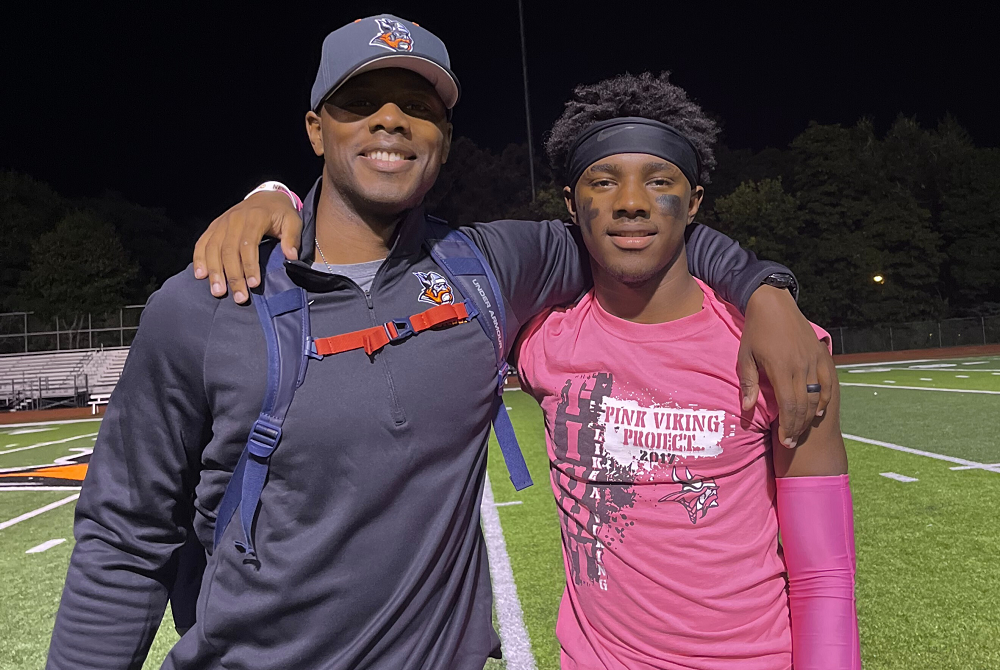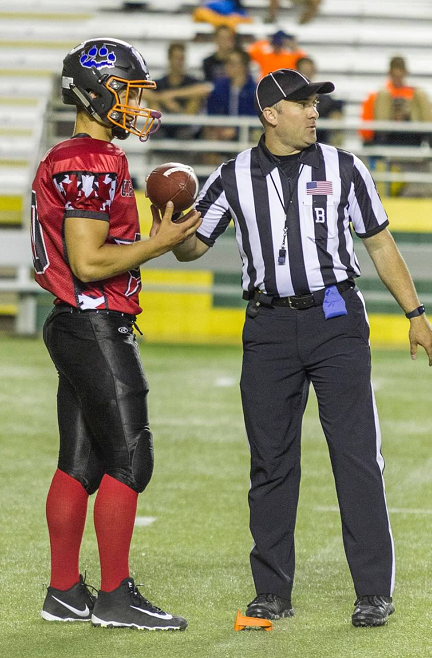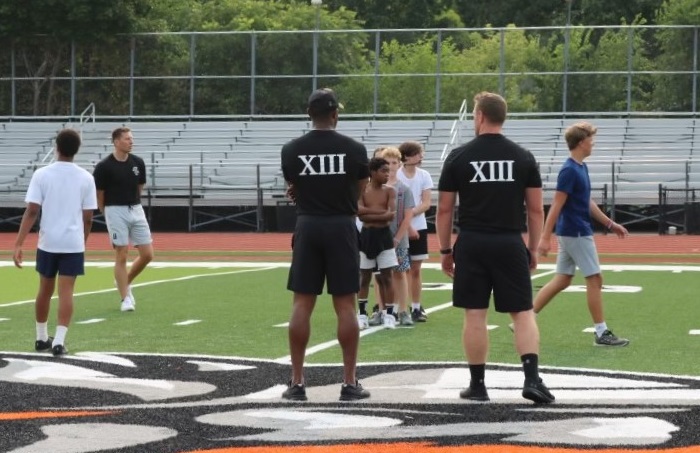
Our Place in the Sun
August 22, 2017
Today’s blog was written by MHSAA Website and Publications Coordinator Rob Kaminski
Millions of people across the country yesterday were mesmerized and fascinated by a once-in-a-lifetime show staged by the solar system: a total solar eclipse, which spanned the contiguous United States from Oregon to South Carolina.
The “Great American Eclipse” (because everything needs a title these days) was preceded by countless hours of coverage to prep enthusiasts on a variety of topics: the best places in which to view “totality;” the time frame in which the phenomenon would occur; the manner in which to view the orbs without damaging retinas; and, for the more scientifically inclined, detailed explanations as to the cause of the event.
It is somewhat ironic that this temporary traveling blackout began in the Pacific Northwest where people often yearn for even a glimpse of the sun over periods of time, and ended off the coast of South Carolina where residents have endured more than their share of weather disasters and a day of total sun would have been greatly preferred. At widespread locations in between, how many citizens beg for just a little more sunshine each day when the clock runs out on Daylight Saving Time?
The attraction to Monday’s event, of course, was its rarity. Its peculiarity. Its deviation from the norm. The last time a total solar eclipse could be seen anywhere in the United States was 1979, and the last time it went coast to coast was 99 years ago. That was the hook. It was darkness’s day in the sun.
Another MHSAA football season kicks off around the state Friday just clear from the shadows of Monday’s historic, but fleeting, happening. The school sports spotlight shines brightest on fall Friday nights and has for decades, not only in Michigan, but also from shore to shore across the country. It is pep rallies and parades; pizza parlors and burger joints; neighborhood caravans and tailgates; perhaps even a Friday cross country meet or volleyball match, all leading up to the football game, for many years the only game in town.
Now, as college football continues its attempt to upset the natural balance and create its own eclipse, it is our hope that high school fans from state to state will consider this movement a fleeting attention grab. It is our hope that the people who have fueled our product over the course of time will turn their heads and focus on the brightest Friday night stars in their own back yards.

From MSP Post to Postgame: Lieutenants Return to the (Football) Field
September 27, 2023
While fans are settling into another season, Michigan State Police Lt. Tedric Gibbs has been fully immersed in football for months.
The Jackson Post’s assistant post commander serves as assistant coach for Jackson High School’s varsity football team and for the team at Parkside Middle School.
“I started coaching when my older son was in youth sports, as a way to do something together that we both love,” Gibbs said. “My younger son followed the same path, so I joined his team too. I grew up in Jackson and am grateful to be able to serve my hometown from the sidelines and at our post.”
 Some 400 miles north, Lt. Mark Giannunzio is also a familiar face in and on the field. The MSP Negaunee Post assistant post commander and Eighth District public information officer enforces the rules of the game as a high school and college football official, the latter for the Great Lakes Intercollegiate Athletic Conference.
Some 400 miles north, Lt. Mark Giannunzio is also a familiar face in and on the field. The MSP Negaunee Post assistant post commander and Eighth District public information officer enforces the rules of the game as a high school and college football official, the latter for the Great Lakes Intercollegiate Athletic Conference.
“I started at the high school level to stay involved in athletics and make authentic connections in the community,” Giannunzio said. “It’s rewarding to help teach the game and share knowledge of the rules. I currently have a full 11-game schedule in the GLIAC Division II college conference, with high school games interspersed during the year.”
The correlation among coaching, officiating and policing translates.
“With my fellow troopers, I want to inspire, motivate and encourage to get the most out of them,” Gibbs said. “I take the same approach with my players to figure out what they need from me, as their designated leader, to be as successful as they can. In both capacities, I do the work alongside them. We do it together.”
This approach is especially important when tough times surface. Lieutenant Gibbs’ high school team experienced tragedy right before its first game when a player died in a car crash.
“We focused on adversity,” said Gibbs, who was in a unique position to talk from a police perspective too. “It’s a benefit to have that insight and background and share it with what they can control – make good decisions and wear your seatbelt.”
Lieutenant Gibbs incorporates his coworkers when he can, like during spring conditioning when fellow troopers join him and his players, helping all involved to make new connections and build strong bonds between the students and officers.
 “One of the most important attributes in both careers is communication,” Giannunzio said. “Communication can make or break an official and a police officer. Much like selling a citation to a motorist, I need to be able to sell the penalty in a calm and professional manner. Demeanor and attitude go together on both the football field and when we are out patrolling in the Blue Goose.”
“One of the most important attributes in both careers is communication,” Giannunzio said. “Communication can make or break an official and a police officer. Much like selling a citation to a motorist, I need to be able to sell the penalty in a calm and professional manner. Demeanor and attitude go together on both the football field and when we are out patrolling in the Blue Goose.”
Treating everyone with dignity and respect is something Lieutenants Gibbs and Giannunzio commit to as members of a modern police agency and in their areas of expertise on the football field.
“Both roles afford so many opportunities to develop culture and cultivate teamwork,” Gibbs said. “The best part is watching others flourish and playing a part in their growth.”
PHOTOS (Top) Michigan State Police Lt. Tedric Gibbs, left, serves as an assistant football coach for the Jackson High varsity. (Middle) Lt. Mark Giannunzio officiates at the high school and college levels. (Below) Gibbs also coaches at Jackson Parkside Middle School. (Photos provided by the Michigan State Police.)

